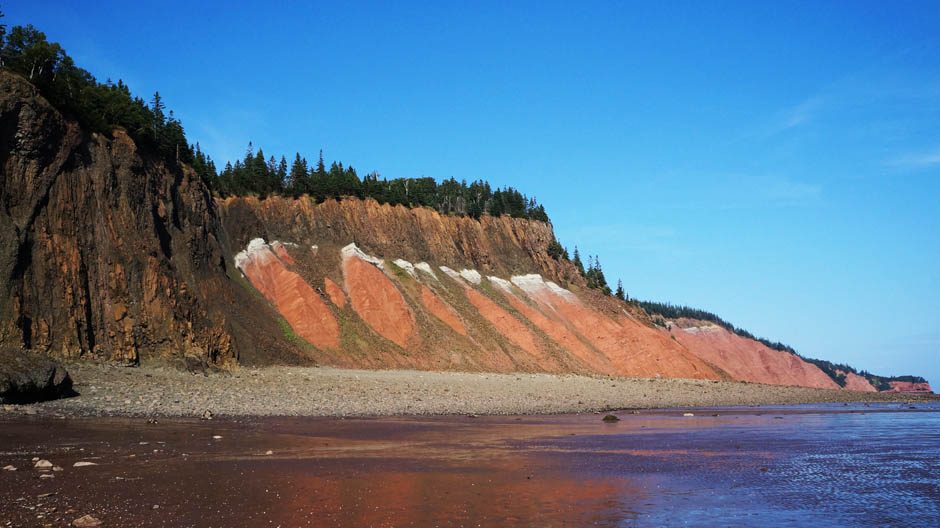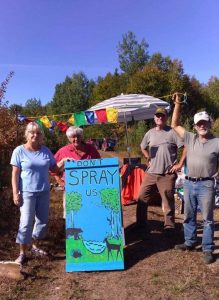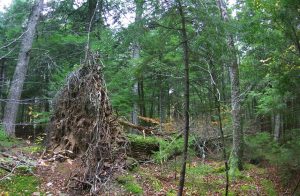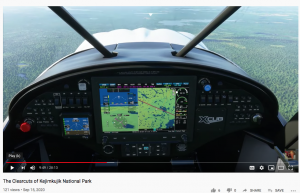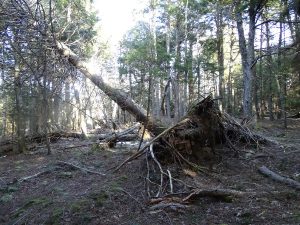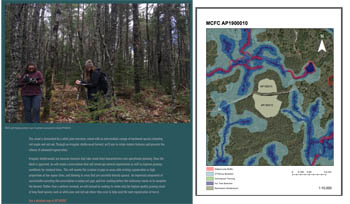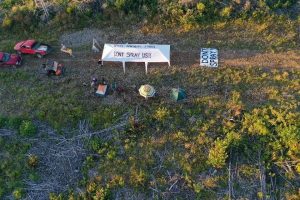
Photo shared on Facebook public groups by N.N. “Lands on the North Mountain scheduled for aerial herbicide spraying have been occupied by a group of neighboring woodlot owners and local residents who are determined to prevent the spraying. The group has erected tents and intend to stay on the land until they receive assurances that the spraying will not take place. They feel that they must take a strong stand to protect their brooks and groundwater.”
——–
UPDATE Sep 10, 2020: Council urges halt to forestry chemical spray program in Annapolis County
By Lawrence Powell For Annapolis County
UPDATE Sep 7, 2020: Cape Breton Environment Group calls for Herbicide Ban on Mainland NS forests – like we have in Cape Breton since 20 years
UPDATE Sep 3, 2020: Protesters win local battle against herbicide spraying, want forestry practice banned by Paul Palmeter for CBC News Sep 3, 2020. “They started out as a few families from Burlington, N.S., opposed to woods in their area of the Annapolis Valley being sprayed by herbicide, but within a few days they gathered support from all over the province.”
UPDATE Sep 2, 2020: “GOOD NEWS! We are grateful to the company that decided not to move forward with spraying glyphosate on his land in North Mountain. {{{thank you}}} – Nature thanks you. The group still plans to meet… as it was not government who made this decision – they would still like to spray us.Together we want to tell government to stop spraying our forests with glyphosate.” Posted on People for Ecological Forestry in Southwest Nova Scotia, approx 10 pm, Sep 2, 2020.
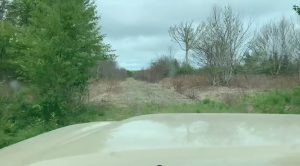
From Video posted on Stop Spraying & Clear-Cutting Nova Scotia (Public Facebook group) by Travis McLeod – “Here is the video I took that had the CBC reach out to me”
Also: Outdoorsman shocked by glyphosate treated forest (archived audio file)
Interview on CBC Info AM Sep 2, 2020 “.. a wasted zone between two vibrant green areas, without songbirds, without small mammals…”
and
Occupy North Mountain, Joan Baxter Sep 1, 2020 in the Halifax Examiner
————-
Like the issue of nesting birds and logging which predictably ignites as we approach and during nesting season, public concerns about spraying of forests with herbicide predictably arise when the spraying is announced and then occurs, in the late summer/fall.
This year the protests have gone up a notch, with protestors occupying a site scheduled for spraying, they say “until they receive assurances that the spraying will not take place”.
Continue reading →
